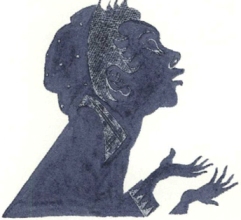The Portuguese people are renowned for their warmth and friendliness, so it would be unkind to repeat the impression that speaking Portuguese is just like speaking Spanish but with your mouth full of toffee. But when did any of us last have to speak Portuguese? Like the Greeks, the Portuguese have had to learn other languages to communicate with the outside world, beyond their old colonies, of course. However, a friend of mine who for sheer love studied the language for years was finally vindicated when we were once lost in Beirut and the only person around to tell us the way turned out to be a Portuguese speaker without a word of English.
The Portuguese, among the greatest sailors and explorers of the sixteenth century, left magnificent traces of their culture all over the world, from the depths of the South American rainforest, to the islands and coasts of the China Sea. From Manaus to Macao, their colonial style was one of elegance and grandeur. And regardless of what you may think of the global importance of Portuguese culture, it must be said that it takes a certain self-confidence to build an opera house halfway up the Amazon!
saudade [sa-oo-dah-der] (noun)
A kind of intense nostalgia that only Portuguese people are supposed to understand. In Katherine Vaz's definition, which she uses to explain the title of her novel Saudade (1994), it is a "yearning so intense for those who are missing, or for vanished times or places, that absence is the most profound presence in one's life. A state of being, rather than merely a sentiment." In his 1912 book on Portugal, literary specialist and translator A. F. G. Bell writes:
The famous saudade of the Portuguese is a vague and constant desire for something that does not and probably cannot exist, for something other than the present, a turning towards the past or towards the future; not an active discontent or poignant sadness but an indolent dreaming wistfulness.
fado [fah-doo] (noun)
Portuguese song is full of saudade, and none more so than the tradition known as fado - a culture not just of song but of a deep and sad romanticism that wells up from the soul. The songwriter and poet Nick Cave has commented that we all experience the Portuguese feeling of saudade. He sees this intense yearning as the breeding ground for the fado love song tradition.

se virar [ser vee-rahr] (verb)
From Brazilian Portuguese, this literally means "to empty." It is used to describe when you try to do something but you don't have enough knowledge to complete the task.
fora do pinico, mijar [four-erdoo pi-nee-koo, mee-jahr] (idiom)
Brazilian Portuguese is colorful in its giria or slang. The late Carlos Lacerda, a journalist and former governor, noted that, "Brazil is the only country in the world where practically every word is a cussword - even mother." Literally meaning "to pee outside the pisspot," in English this means "to miss the target," or "to say the wrong thing."